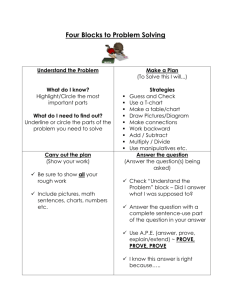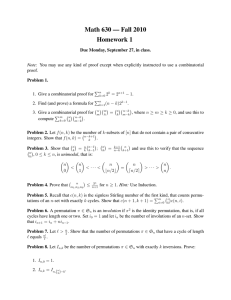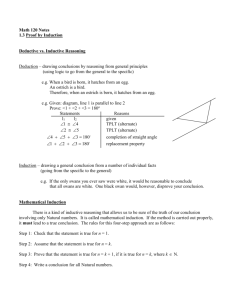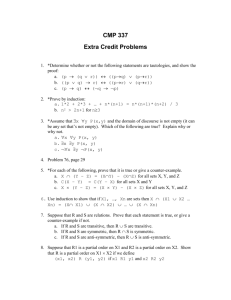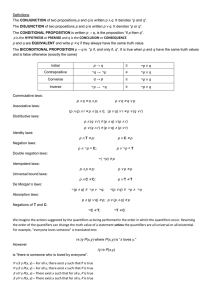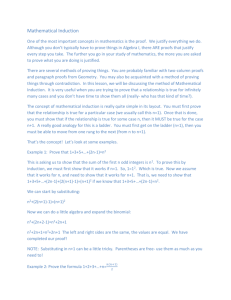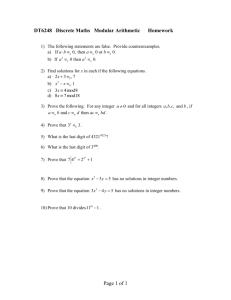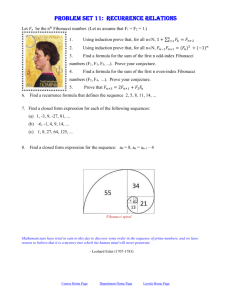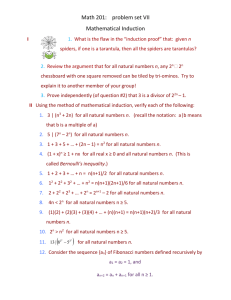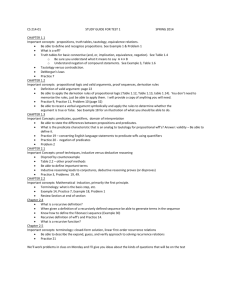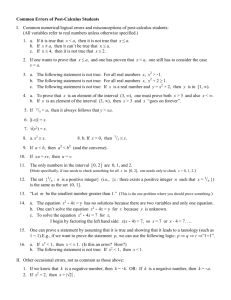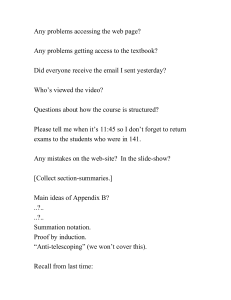381FinalReview - ODU Computer Science
advertisement
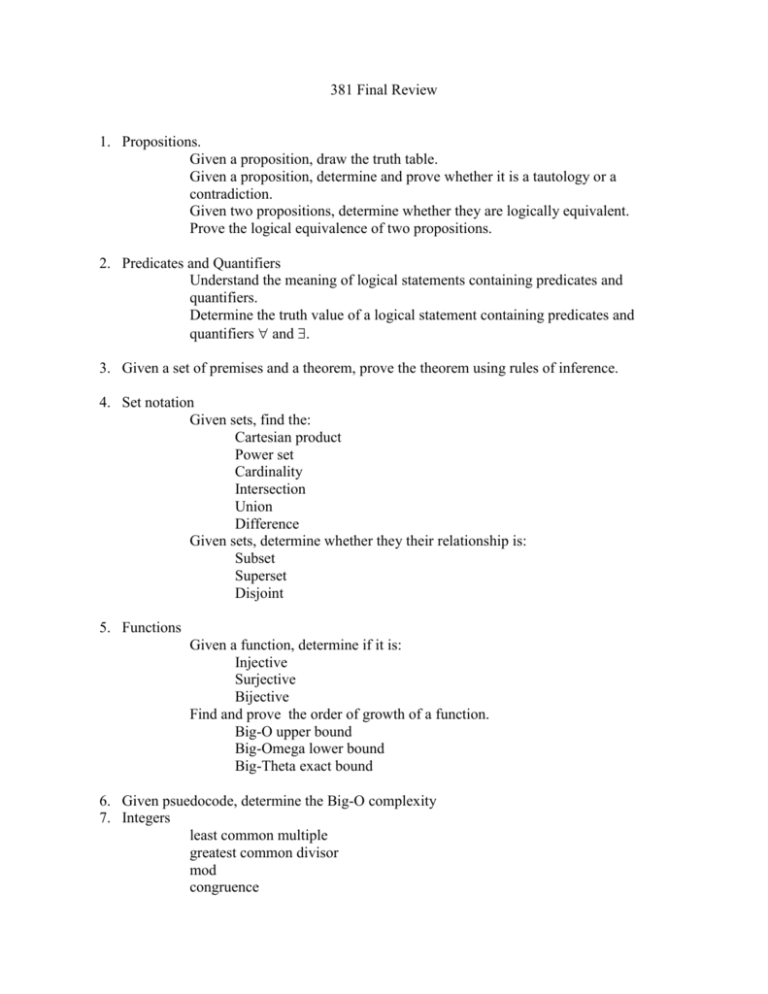
381 Final Review 1. Propositions. Given a proposition, draw the truth table. Given a proposition, determine and prove whether it is a tautology or a contradiction. Given two propositions, determine whether they are logically equivalent. Prove the logical equivalence of two propositions. 2. Predicates and Quantifiers Understand the meaning of logical statements containing predicates and quantifiers. Determine the truth value of a logical statement containing predicates and quantifiers and . 3. Given a set of premises and a theorem, prove the theorem using rules of inference. 4. Set notation Given sets, find the: Cartesian product Power set Cardinality Intersection Union Difference Given sets, determine whether they their relationship is: Subset Superset Disjoint 5. Functions Given a function, determine if it is: Injective Surjective Bijective Find and prove the order of growth of a function. Big-O upper bound Big-Omega lower bound Big-Theta exact bound 6. Given psuedocode, determine the Big-O complexity 7. Integers least common multiple greatest common divisor mod congruence 8. Summation & sequences Given a sequence definition, find terms in the sequence. Understand summation notation. 9. Induction Use induction to prove an equality or inequality involving a summation. 10. Recursion Understand recursive definitions for functions sequences data structures (e.g., trees) Use structural induction to prove properties of recursively defined objects. 11. Combinations, permutations, & pigeonhole principle Compute combinations and permutations as in Quiz 5. Apply pigeonhole principle to word problems. Identify “pigeons” and “holes”. 12. Relations Determine whether a relation is reflexive, symmetric, antisymmetric, and/or transitive. Find the composition of two relations. Represent a relation as a graph or a 0-1 matrix 13. Graphs Understand graph terminology (adjacent, incident, etc.) Understand types of graphs (directed, bipartite, simple, etc.) Determine whether two graphs are isomorphic
